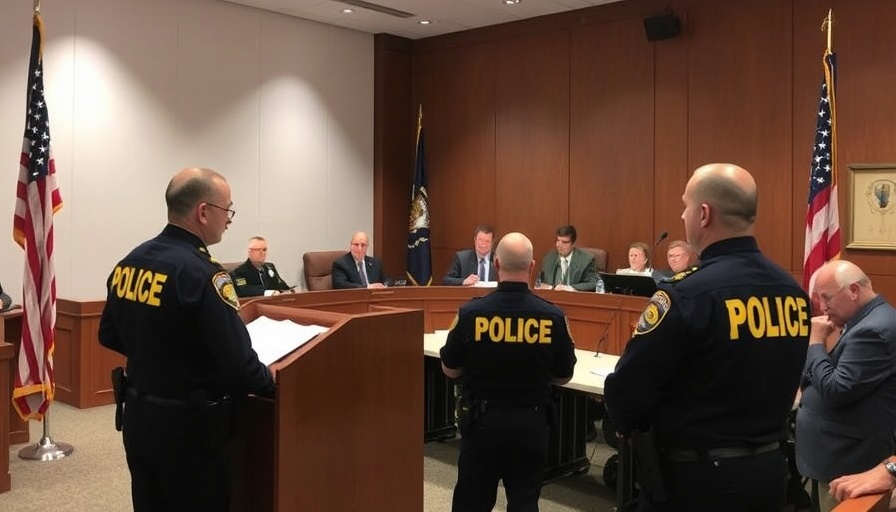
Worcester's Stand Against ICE: A City Council Decision
In a significant gesture of defiance against federal immigration enforcement, the Worcester City Council has voted 8 to 2 against participating in the controversial 287(g) agreement with the Immigration and Customs Enforcement (ICE). This resolution, introduced by City Councilor-at-Large Khrystian King, aims to reassure immigrant residents that local police will not serve as federal immigration agents, thereby reinforcing community trust and public safety.
Constitutional Rights at the Forefront
As Councilor King articulated, this vote is intended to send a clear message regarding the protection of constitutional rights, especially as ICE activities have intensified within Worcester’s immigrant communities. King emphasized how such federal interventions could have a chilling effect on public safety, deterring individuals from seeking assistance from local law enforcement out of fear of deportation. "We are not going to engage in any violations of folks' constitutional rights," he stated, echoing a strong sentiment within the community.
The Community's Voice: A Rally against ICE
Prior to this pivotal vote, community activism prompted demonstrations voicing solidarity with those affected by ICE actions. Activists highlighted a troubling incident involving the arrest of a young woman by Worcester police in conjunction with an ICE detainment, illustrating the real and immediate ramifications of federal policies on local families. Councilor Etel Haxhiaj, who was arrested while intervening during an ICE operation, urged the council to take actions that prevent further family separations and hold the federal government accountable for their enforcement methods.
Opposing Views: Arguments for Collaboration
The council's decision was not without opposition. Former Bristol County Sheriff Tom Hodgson defended partnerships with ICE, suggesting they are crucial in preventing crime and enhancing community safety. He argued that cutting ties with ICE could endanger vulnerable populations and lead to increased criminal activities within immigrant communities. However, council supporters believe the potential risks associated with ICE collaboration outweigh the perceived benefits, advocating instead for a community-centric approach to safety.
Future Implications and ACLU Advocacy
The ACLU of Massachusetts is now pushing for statewide legislation that would further prevent local police involvement in immigration enforcement through 287(g) agreements. This calls into question not only Worcester’s policy but also the broader implications for cities across the Commonwealth as they navigate the complexities of immigration enforcement and local law. With ICE's Operation Patriot 2.0 anticipated to escalate activities, advocacy groups are actively rallying for protective measures for immigrant families.
This rejection of the ICE partnership illustrates a profound local commitment to civil liberties—a sentiment echoed by many city leaders and residents who prioritize community solidarity over federal mandates. As Worcester grapples with its identity amidst national immigration debates, this decision highlights the importance of community voices in shaping policies that impact daily lives.
 Add Row
Add Row  Add
Add 




Write A Comment